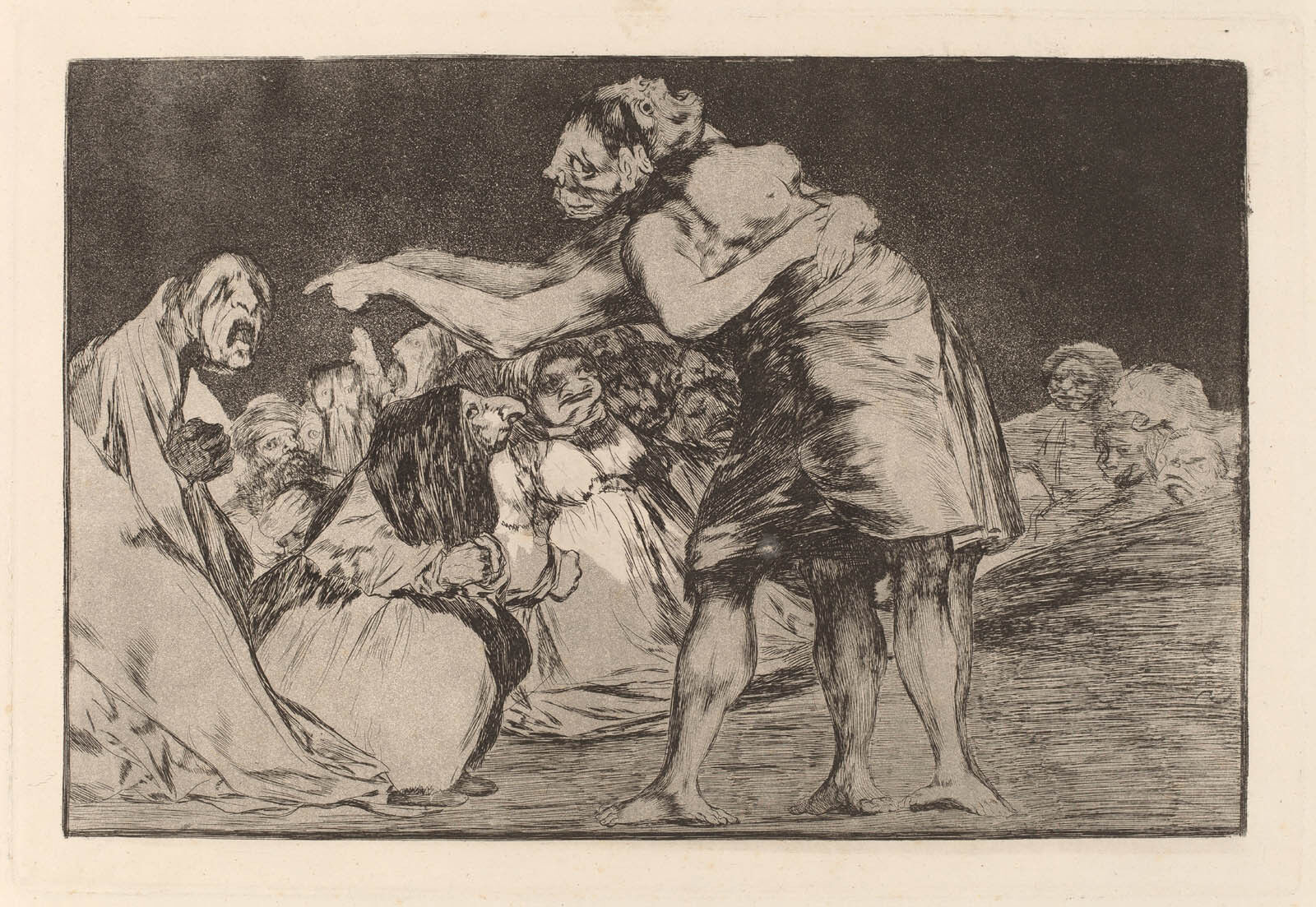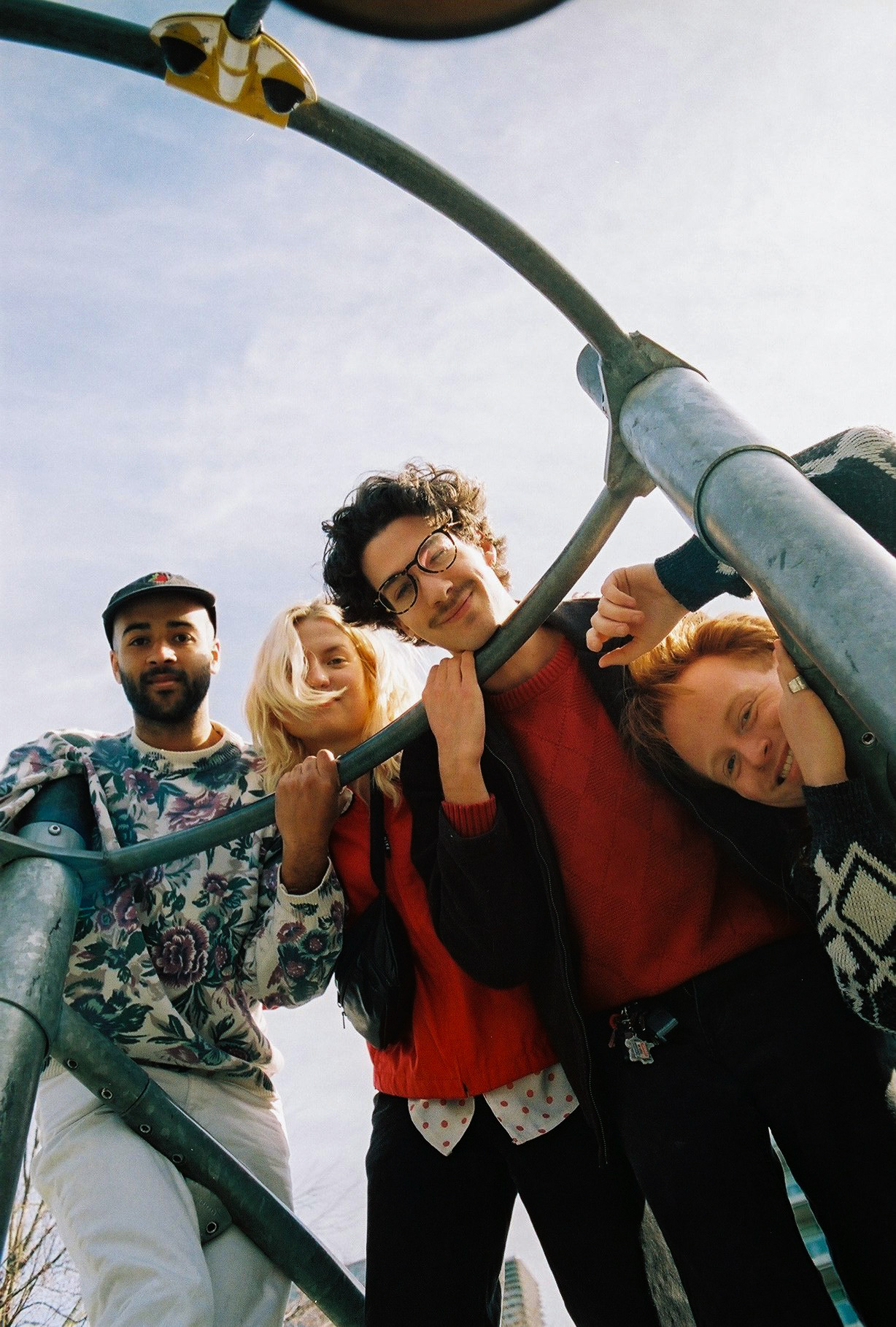The Soledad Barrio & Noche Flamenca company was created in 1993 by Martín Santangelo, co-founder, artistic director and choreographer, and Soledad Barrio, co-founder, choreographer and principal dancer. Since the 1990’s their production company has come to be lauded as one of the finest exponents of the flamenco tradition today. Their most recent offering is a very unique and captivating program titled “Searching for Goya.” This special production, the brainchild of company director, Martin Santangelo, promises to be an extraordinary exploration of the profound connections between flamenco artistry and the iconic Spanish painter Francisco Goya. Scheduled to perform in January in Montreal, we sat with Martin ahead of his many premieres and tours to talk about the show.
PAN M 360 : Thanks for being with us Martin. We’re very excited for this very special programme. Have you started premiering the show?
Martin Santangelo : Yes, we just officially did the world premiere in Seattle, Washington last week. And the week before that we had the official premiere. We’ve been working on it and workshopping it for the last year or so. And of course I’ve been working on it for the last four years. So we were very, very happy and relieved to actually do the world premiere. It went very well. I was very happy about that.
PAN M 360 : Well I wonder, in your view, what really is the measure of a good performance?
Martin Santangelo : It’s a very good question. A good performance for me is that the audience understands what I’m trying to say. That’s the first measure. That’s much beyond whether it’s a good show or a bad show, that the comprehension of what I’m trying to do gets across to the audience. And at the end of the day it is also extremely important that there’s something cathartic that occurs. Because catharsis is built into the flamenco. It’s part of the flamenco. It’s why the flamenco exists. It’s a way for people to go on with their lives in face of or in lieu of an impossibility.
The flamenco is a mechanism of catharsis. It’s a scream that exists so people can wake up the next day and go on with their lives. So my measure of success is one, what am I trying to do? What am I trying to make understood in my performance? And then second, am I using the flamenco in the appropriate way? And those two things occurred last week in the World Premier. So that’s my measure of success. Of course things can be better. Things can always be better. We’re going to begin rehearsing next week again.
PAN M 360 : Have you ever felt that sometimes this very real history behind the flamenco gets neglected? Perhaps it’s important to be aware of its origins to get the most out of the experience.
Martin Santangelo : I mean, it only helps to be aware. However flamenco is pretty global, in the sense that it was made by like 28 different cultures. It’s not just Spanish. It has to do with the Northern Africans, the Muslims, the Jews, the Sephardic Jews, the Christians, the Northern Indians who migrated into Spain. And they all kind of mixed together for 900 years. And many of those cultures were repressed and they screamed out and they created flamenco. So of course, it can help to know the origins of this tradition… At the same time, we’re seeing…we’re seeing a lot of oppression of cultures all over the world now. So things historically have not changed. So in one sense, you can identify with what’s going on with the flamenco in the present time as well.
And so if you have the chance to go into the origins, great. If you don’t and you’re just exposed to it and if it’s done correctly, I’m pretty sure that you’ll feel it. You’ll get an understanding. An intuitive understanding.
PAN M 360 : And of course, this program has a special kind of Goya twist. Was this your brainchild?
Martin Santangelo : Yes, I fell in love with Goya about four years ago during the pandemic. I knew of him somewhat, but I didn’t know about him deeply. And you know there’s a great quote from an art critic that we put in the program – “to see Goya is to see ourselves” – and it’s quite true. Goya really reveals who we are, our human nature, our inadequacies, our brutality towards other human beings. And animals too, which is interesting, because he goes into the whole world of bullfighting. He calls it out. He calls out the violence that human beings have towards animals. Something he dealt with all his life. He really loved bullfighting but he hated the violent part of it. And so he really makes us see what violence, what war, what brutality does to one another, the effects of it. Of what we do to each other.
PAN M 360 : Was there one piece in particular that opened the doors so to speak?
Martin Santangelo : Yes there was ! It’s called ‘the Follies’, or ‘Los disparates’ in Spanish. It was a series he did towards the end of his life, which many artists today say as the beginning of modern art and abstract art. And it’s a drawing or a lithograph, an engraving of a woman on a horse doing a magic trick or doing a show for an audience. And you look at the lithograph, the image, and you see the first thing you see is an audience. So you’re watching an audience, watching… a show. And it is, it’s amazing. It’s a little voyeuristic. We do it in the show and it’s a woman dancing on top of a horse and there’s a moment that she does that in the show. It’s extraordinary.
And you see this demolished, under nurtured audience watching one of the most beautiful shows in the world. And it’s like a, you know, a magic world for them. So it’s, it’s, it’s really quite a compassionate painting of watching these townsfolk from who don’t have much education witnessing an incredible show. And that’s my dream, you know, to be able to do art for people who really need it. So that was the beginning for me, it opened the doors as you said.

PAN M 360 : And what was your process in translating, you know, a visual medium into a flamenco choreography?
Martin Santangelo : What wasn’t the process! Yeah, I’ve tried everything and anything because it’s a very new thing for me to take a visual artist and translate it into dance or song. What it boils down to is to get a deep understanding of what Goya wants to say. And then, with my language, with the music, the song, and say, all right, how can I say that? Because I began doing the typical thing, which is an imitation of the original images, but it was a bit of a disaster. Because you can’t really do it. But I could steal certain things like his sense of composition. Because he’s a genius in that sense.
After about a year of working on this project, I realised I couldn’t just imitate the images because it didn’t really say anything new. I had to find a meeting point between the emotional storytelling of the flamenco and the narrative storytelling of Goya, of what his images are telling us. And then I began to find my way or at least I’m beginning to find my way.
PAN M 360 : And what can you say of Soledad’s role in all of this?
Martin Santangelo : Soledad’s role in this has been instrumental. She’s been very patient with me, because I’ve spent so many months and weeks and hours talking and talking and talking with her about ideas. And we go back and forth. I talk, she dances, she dances and I watch. She converts a lot of what I have in my mind into physicality. So that’s been, you know, a real gift for me. She’s extraordinary. And we understand each other, which is great.
As far as the other part, the music part, I usually work on that by myself with the musicians. And then I give it to her as a map, the music that’s mostly done, about 90% done. And then she’ll take that and take my ideas and come out with some extraordinary choreography. So we’re co-creators in this process. Absolute co-creators.
PAN M 360 : I see. It must be incredible to finally see your vision come to life after all this time. How many shows do you have lined up ahead of you?
Martin Santangelo : Right now we have a lot of shows in New York. I think about 20 or 25 shows, which is great, because it’ll be like working out the muscles. Now that we’ve broken the ice we are going to keep working the show and just perfect it. There’s so many more things that I’d like to do.
PAN M 360 : So each performance is always a bit different?
Martin Santangelo : A little bit, yeah. And, you know, when we do a show on a Wednesday and a Thursday, I can rehearse on Thursday what we did Wednesday.
PAN M 360 : This sounds exhausting. Especially for such a demanding and cathartic tradition as you say. What’s your secret Martin? Yoga?
Martin Santangelo : Ha, well I swim a lot. That’s my meditation. And yes, it’s exhausting but it’s also so nurturing, this work. Because, first of all, you understand deeper things in life with artists like Goya. I began to understand things, see things in a new way because of him. And of course each performance gives me a lot of energy back. You know, I would be lost without this work.
PAN M 360 : I see, it’s really a give and take. It’s been so interesting to hear you speak about this project. It’s really clear you’ve spent a lot of time trying to get inside the world of Goya. And I find with these sorts of endeavours, at the end of the day, you never really know how these artists truly felt, or where they were really coming from. Sometimes, I wonder what they would think of us.
Martin Santangelo : That would be fascinating.
PAN M 360 : Imagine if Goya was in your audience!
Martin Santangelo : Yeah. I don’t know if he would get up and leave or take me out for a glass of red wine!
PAN M 360 : I like to think he would! It’s been a real pleasure Martin. I’m extremely excited for this performance, I wish you and the team all the best with your performances.
Martin Santangelo : We’re looking forward to it too. Thanks a lot.
